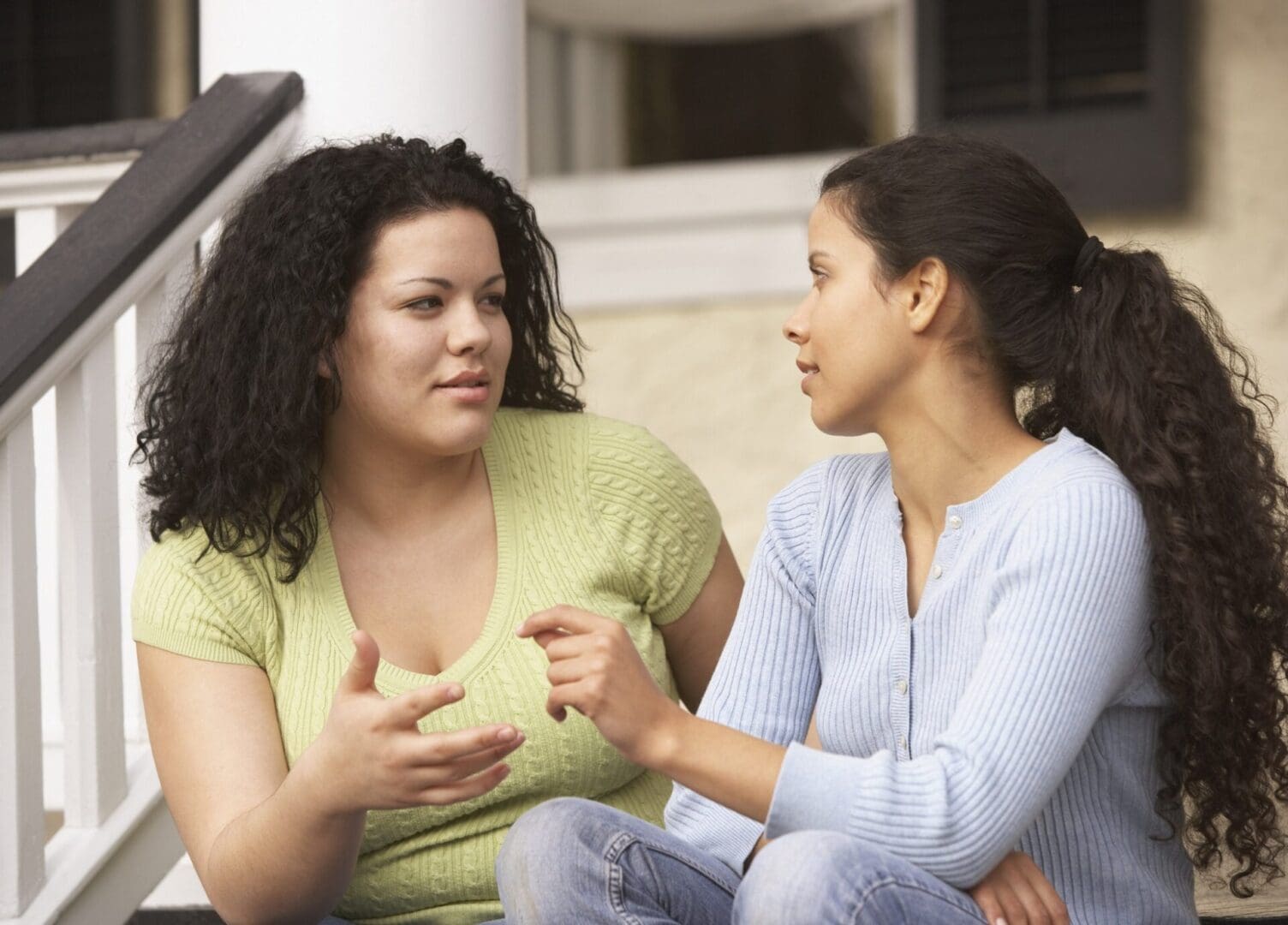Talking about abortion can be challenging sometimes. Finding resources should be simple.
We’ve developed three discussion guides for general conversations and for talking with your family and fellow students on your college campus.
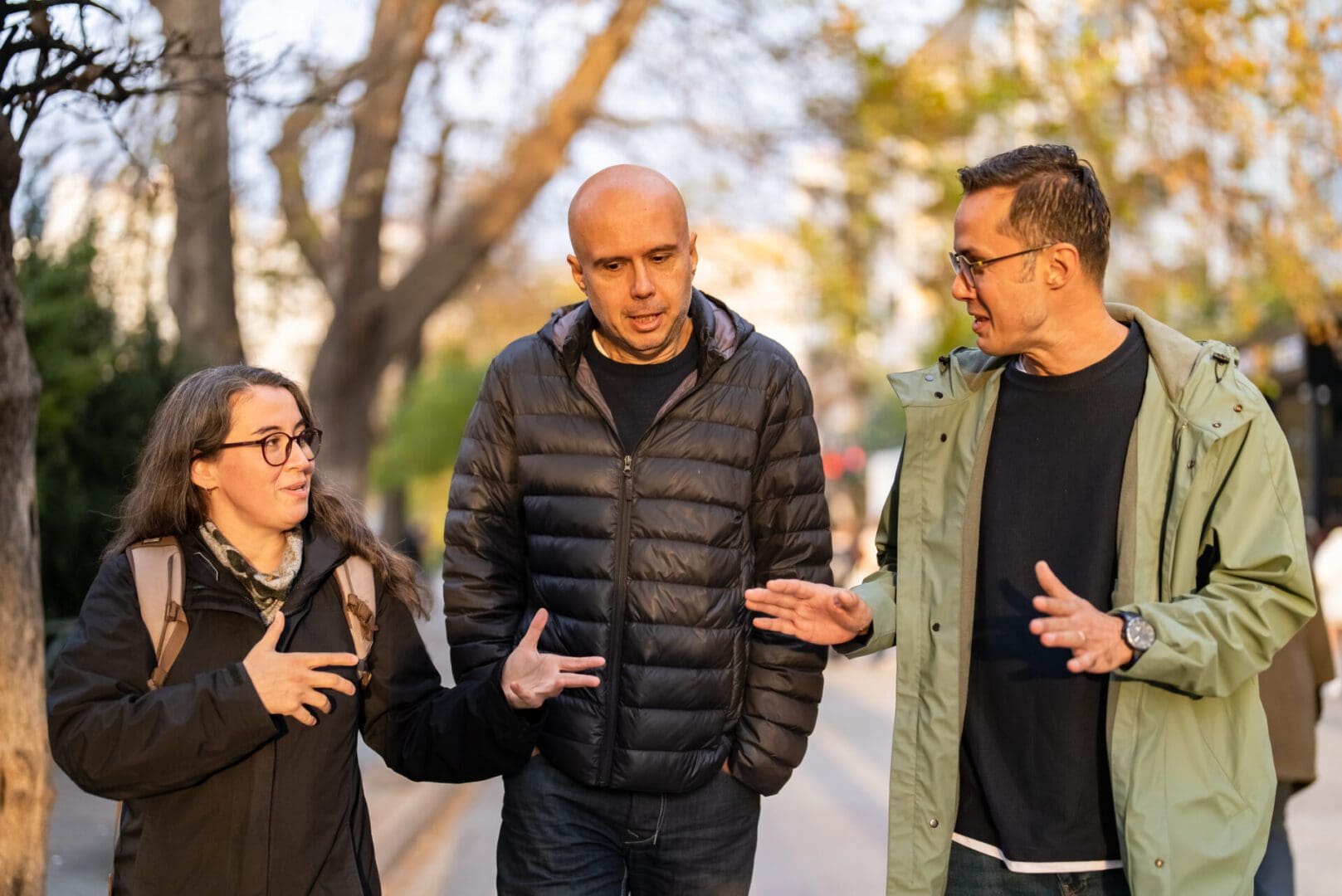
GENERAL ABORTION DISCUSSION GUIDE
You’ll likely encounter people who have general misconceptions about abortion or just want to learn more. You may hear from people who are learning the fundamentals about abortion.
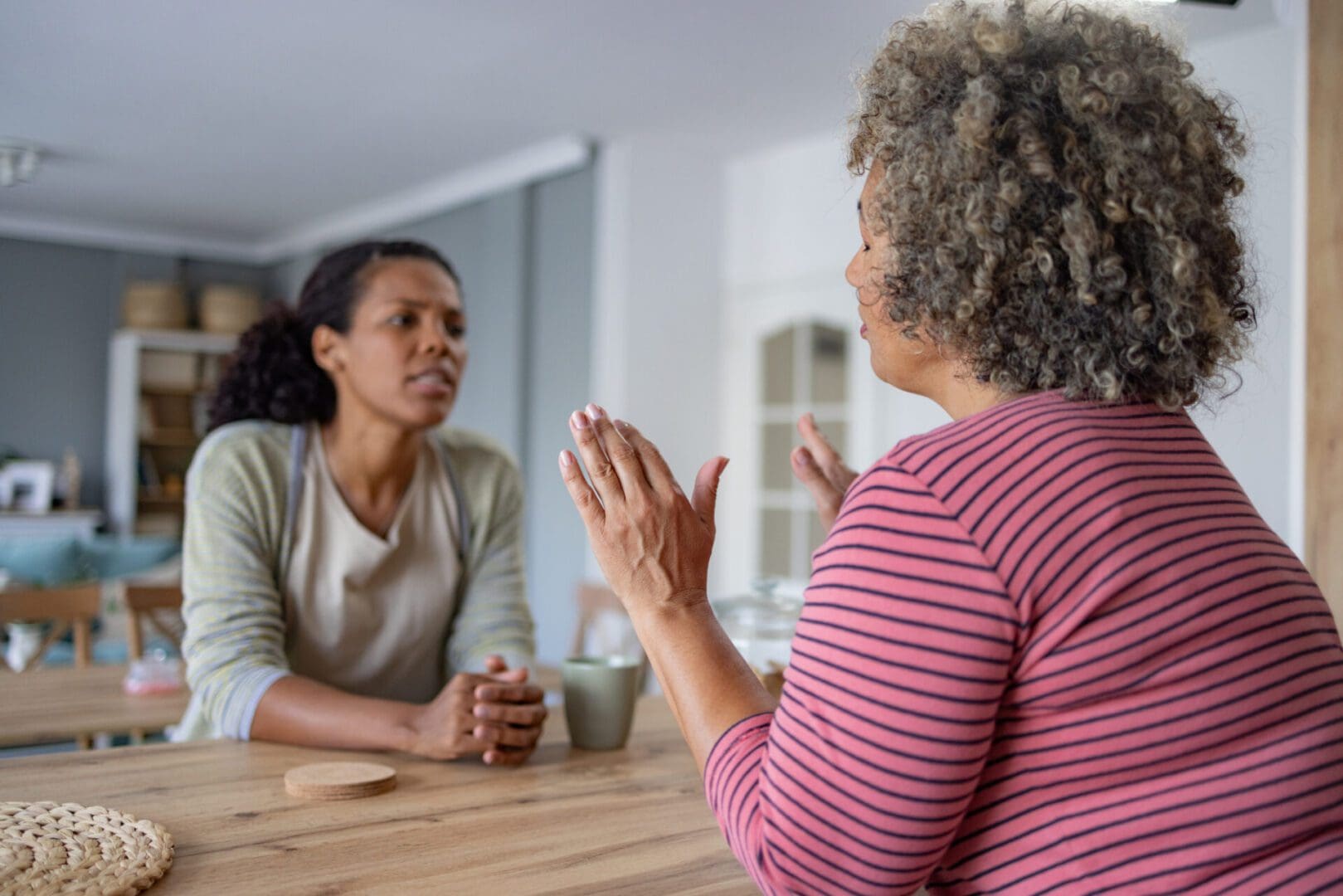
COMMUNITY AND FAMILY ABORTION DISCUSSION GUIDE
As you work to advocate for abortion in your community or have conversations about abortion with family, you’ll hear tougher questions and comments.
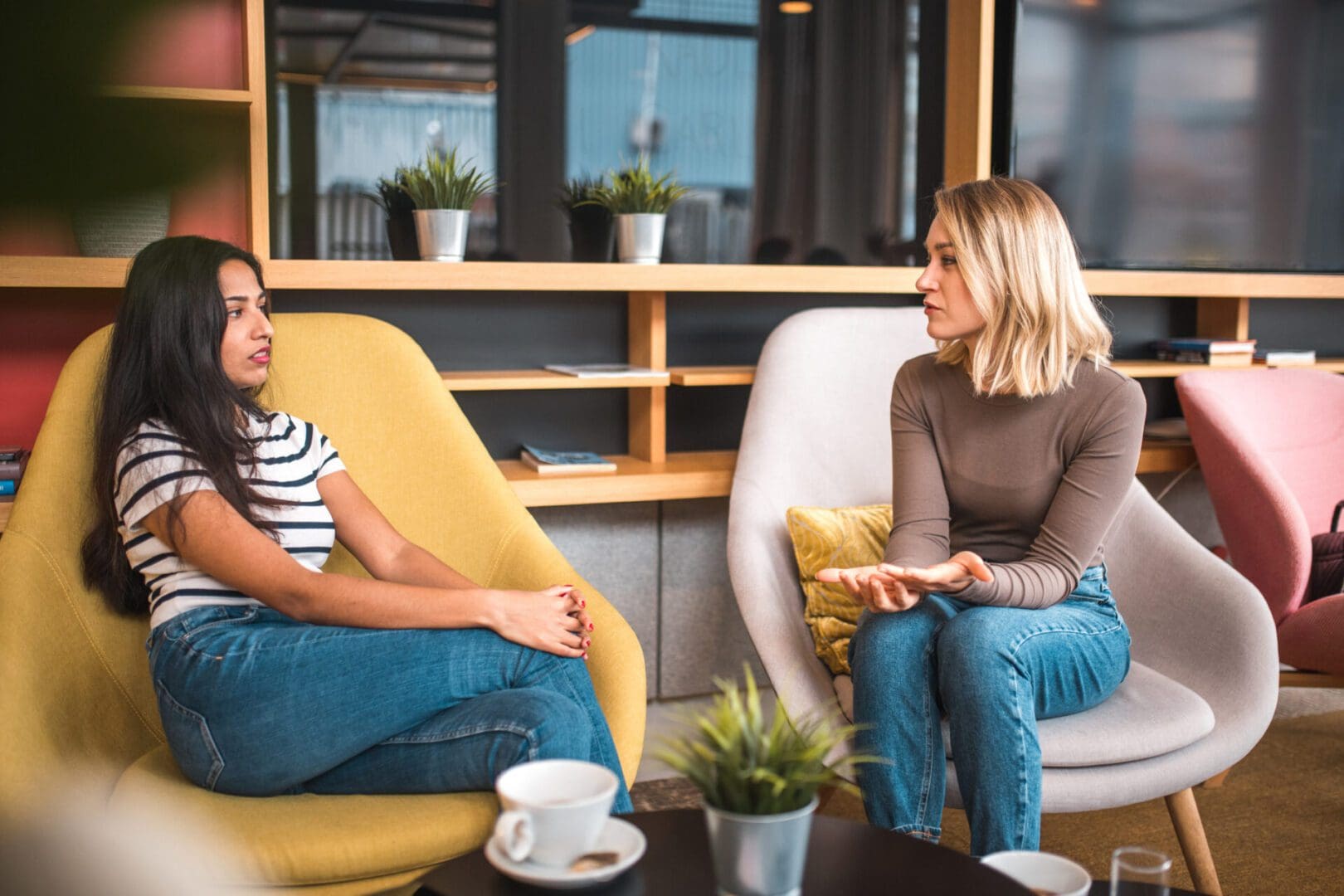
CAMPUS ABORTION DISCUSSION GUIDE
When you ask fellow students at your school to get involved with abortion rights, it’s important to articulate why fighting for abortion access is important.
The guides provide answers to these questions and more:
A: Many people have misconceptions about abortion. Here are five quick but impactful facts.
1. Abortion is a human right.
2. Abortion is normal. Categorizing abortion differently from other healthcare procedures leads to stigma and discrimination.
3. Abortion is routine and safe. It is one of the safest medical procedures a patient can receive. The risk of complications is less than 1 percent.
4. Transgender and non-binary people also need access to abortion care. Inclusive language like “pregnant people” recognizes everyone’s human rights.
5. The majority of Americans believe the right to abortion should be protected.
A: Even before the Supreme Court overturned Roe v. Wade, many people in the United States—especially but not exclusively the South—were living in a “post-Roe” era without access to abortion care. Abortion restrictions and bans have historically targeted Black, brown, and Indigenous people, young people, low-income people, LGBTQ+ people, disabled people, undocumented people, and people living in rural areas. With Roe overturned, people seeking abortion are increasingly criminalized, and 1 in 3 women of reproductive age now live in a state with little or no access to abortion care. This has a tangible impact on people seeking care: patients may need to travel hundreds—or even thousands—of miles to reach a clinic, secure lodging if the clinic is far away, take time off of work, and arrange for childcare if needed. These barriers come with great financial burdens for many, particularly people needing to travel to access care.
A: Abortion is about the pregnant person’s autonomy, plain and simple. Because the pregnant person is carrying the fetus, they have the right to make decisions about whether to continue with the pregnancy or not. Abortion is healthcare, and people deserve access to it like any other medical procedure.
A: People of all faiths and backgrounds have abortions. No person ever has to choose abortion for themselves (if it’s against their faith or any other reason), but it is important to know that there is no universal religious stance against abortion. In fact, the majority of religious people of all faith traditions do support abortion justice. Supporting access to abortion is about many fundamental tenets that many people hold to be foundational to their faith—freedom, dignity, equality, and fighting injustices among them.
A: Specific student statistics can be hard to find, but data collected by the CDC in 2020 showed that 19.2% of people who had abortions were between the ages of 20 and 24, the highest percentage of any age group. Overall, 1 in 4 people with the ability to become pregnant will have an abortion in their lifetime. Everyone knows and loves someone who has had an abortion.
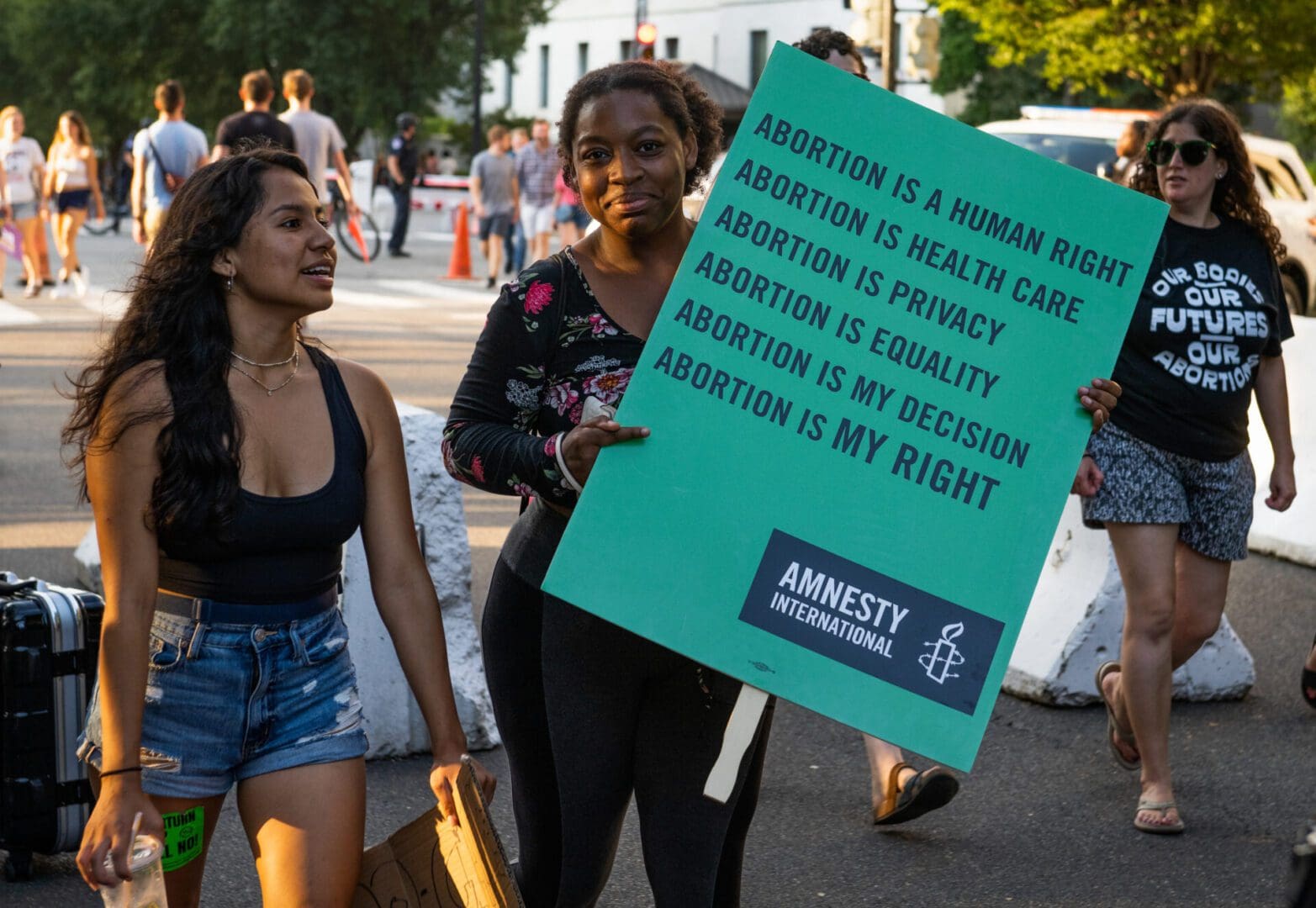
More ways to get involved
Amnesty International USA created an abortion rights toolkit with several ways activists like you can get involved in the fight to protect the right to abortions.

